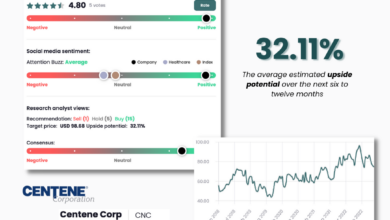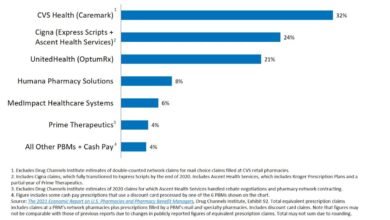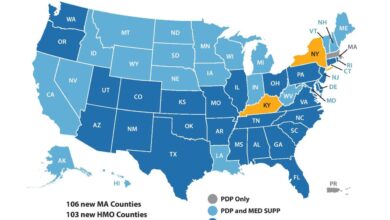
Community Health Systems DOJ Investigation
Community Health Systems DOJ investigation: The healthcare giant is under the microscope, and the implications are far-reaching. This investigation isn’t just about legal battles and hefty fines; it’s about patient care, access to vital services, and the very fabric of trust in our healthcare system. We’ll delve into the specifics of the allegations, explore the potential consequences for patients and CHS itself, and consider the broader ethical and financial implications of this unfolding drama.
Get ready for a deep dive into a story that’s impacting communities across the nation.
This investigation touches on several key areas: the nature of the allegations against CHS, the potential legal ramifications, the impact on patient care and access, the financial burden on the company, and the ethical considerations surrounding corporate governance. We’ll also examine how the media is portraying the situation and what potential reforms might emerge from this challenging period. It’s a complex story with many moving parts, and I aim to break it down in a way that’s both informative and easy to understand.
Overview of Community Health Systems and the DOJ
Community Health Systems (CHS) and the Department of Justice (DOJ) have been embroiled in a complex legal battle, raising significant questions about healthcare industry practices and government oversight. Understanding the intricacies of this case requires examining both CHS’s operational structure and the DOJ’s historical involvement in healthcare investigations.CHS is one of the largest publicly traded hospital companies in the United States, operating a vast network of hospitals and other healthcare facilities across numerous states.
Their structure is decentralized, with individual hospitals maintaining a degree of operational autonomy while reporting to corporate headquarters. This structure, while allowing for local adaptation to community needs, can also present challenges in terms of consistent compliance and oversight across the entire system. The company’s operations encompass a wide range of services, from emergency care and inpatient treatment to outpatient clinics and specialized medical services.
The scale of their operations makes them a significant player in the US healthcare landscape, and consequently, a frequent target of regulatory scrutiny.
The Department of Justice’s History of Healthcare Investigations
The DOJ’s Antitrust Division has a long history of investigating healthcare providers for potential violations of antitrust laws, focusing primarily on issues such as price-fixing, market allocation, and mergers that reduce competition. These investigations are crucial for maintaining a competitive and efficient healthcare market, ensuring patients receive quality care at fair prices. The DOJ employs a multi-pronged approach, utilizing civil and criminal enforcement mechanisms to address violations.
This often involves extensive document review, witness interviews, and economic analysis to establish the existence and impact of anti-competitive conduct. The consequences of a DOJ investigation can be severe, ranging from significant financial penalties to criminal charges against individuals and the company itself.
Timeline of Significant Events: CHS and the DOJ
The interaction between CHS and the DOJ has spanned several years and involved multiple investigations. While specific details of ongoing or concluded investigations are often confidential due to legal reasons, a general timeline can be constructed based on publicly available information. This timeline would include the dates of initial investigations, any announcements of settlements or indictments, and significant court rulings.
The DOJ investigation into Community Health Systems is raising serious questions about antitrust practices in the healthcare industry. This comes at a time when the legal landscape is shifting dramatically, as evidenced by the Supreme Court’s decision to overturn the Chevron Doctrine in healthcare, which you can read more about here: scotus overturns chevron doctrine healthcare. This ruling could significantly impact the outcome of the Community Health Systems investigation, potentially altering the interpretation of existing regulations.
For example, a specific year could represent the commencement of an investigation into potential antitrust violations related to a specific acquisition or merger by CHS. Another year could note a settlement reached between CHS and the DOJ, outlining the terms of the agreement and any penalties imposed. A subsequent year could indicate the conclusion of a separate investigation, potentially with a different outcome.
Constructing a detailed timeline requires accessing and analyzing official court documents and press releases from both CHS and the DOJ. The precise details of each event would need to be sourced from reliable news reports and legal databases.
Nature of the DOJ Investigation into CHS
The Department of Justice (DOJ) investigation into Community Health Systems (CHS) is a significant event in the healthcare industry, raising concerns about potential violations of federal healthcare laws. The investigation’s scope and ultimate findings will have far-reaching consequences for CHS, its patients, and the broader healthcare landscape. Understanding the nature of these allegations is crucial for assessing the potential impact on the company and the public trust.The DOJ’s investigation centers around allegations of fraudulent billing practices by CHS.
Specifically, the investigation focuses on whether CHS knowingly submitted false claims to Medicare and Medicaid, potentially violating the False Claims Act. These allegations involve a range of practices, potentially including upcoding (billing for a more expensive service than was actually provided), unbundling (separately billing for services that should be bundled together), and other improper billing schemes designed to maximize reimbursement from government healthcare programs.
The scale of these alleged practices and the number of affected patients remain unclear pending the conclusion of the investigation.
Allegations Against CHS
The allegations against CHS are serious and multifaceted. They involve the potential systematic manipulation of billing practices to inflate reimbursements from federal healthcare programs. While the specific details of the allegations are not publicly available due to the ongoing nature of the investigation, the general nature of the accusations suggests a pattern of potentially illegal activity. This could involve the pressure placed on hospital staff to meet specific billing targets, leading to the improper coding of services.
The investigation is likely scrutinizing internal CHS documents, communications, and employee testimonies to build its case. A conviction could lead to significant financial penalties and reputational damage for the company.
Key Legal Statutes and Regulations Potentially Violated
The primary legal statute potentially violated is the False Claims Act (FCA), 31 U.S. Code § 3729. The FCA imposes significant civil penalties on individuals and entities who knowingly submit false or fraudulent claims to the federal government. The FCA carries treble damages (three times the amount of the false claims) plus substantial civil penalties. In addition to the FCA, CHS could face violations under other statutes and regulations related to Medicare and Medicaid fraud, including those under the Anti-Kickback Statute and the Stark Law, depending on the specifics of the alleged conduct.
These laws aim to prevent conflicts of interest and ensure that healthcare services are provided based on medical necessity, not financial incentives. The complexity of healthcare billing and reimbursement regulations creates opportunities for unintentional or intentional violations, leading to the significant investigative resources dedicated to such cases.
Potential Consequences for CHS and its Stakeholders
The potential consequences for CHS are substantial and far-reaching. A guilty verdict under the FCA could result in billions of dollars in fines and penalties. Beyond financial repercussions, a conviction would severely damage CHS’s reputation and erode public trust. This could lead to decreased patient volume, difficulty attracting and retaining employees, and a decline in investor confidence, potentially impacting the company’s stock price and its ability to secure future financing.
Further, CHS might face exclusion from participation in Medicare and Medicaid programs, effectively crippling its operations. Stakeholders, including investors, employees, patients, and the communities served by CHS hospitals, will all experience the ramifications of the investigation’s outcome. The long-term effects on healthcare access in affected communities are also a significant concern. For example, a similar case against a large healthcare provider resulted in a multi-billion dollar settlement and significant operational restructuring, highlighting the severity of potential outcomes.
Impact on Patients and Healthcare Access
The Department of Justice investigation into Community Health Systems (CHS) carries significant implications for the patients who rely on their services. The uncertainty surrounding the investigation’s outcome creates ripple effects that could compromise the quality and accessibility of healthcare in the communities served by CHS hospitals. The potential financial repercussions, changes in leadership, and disruption to operations all pose considerable risks.The investigation’s impact on patient care and access to healthcare services is multifaceted.
Depending on the investigation’s findings and subsequent actions, CHS might face financial penalties, restrictions on operations, or even potential divestiture of certain facilities. These consequences could directly translate into reduced staffing levels, limitations on available treatments and procedures, and increased wait times for appointments and procedures. In some cases, the investigation might even lead to the closure of some facilities, leaving patients without readily available healthcare options.
Potential Scenarios Affecting CHS Service Provision
Several scenarios illustrate how the DOJ investigation might affect CHS’s ability to provide services. For instance, if CHS is found liable and faces substantial fines, the organization might be forced to cut costs by reducing staff, delaying equipment upgrades, or limiting access to certain specialized care. This could lead to longer wait times for appointments, a decline in the quality of care due to overworked staff, and potentially, the rationing of essential medical resources.
Another scenario involves a mandated restructuring of CHS’s operations, which could disrupt existing patient care workflows and create confusion for both patients and medical personnel. In a worst-case scenario, the investigation could result in the closure of some hospitals or clinics, leaving entire communities without access to vital healthcare services, particularly in underserved areas where CHS may be the primary provider.
This could disproportionately impact vulnerable populations who may lack the resources to travel to alternative healthcare facilities.
Impact on Different Patient Demographics
The impact of the DOJ investigation on CHS is unlikely to be uniform across all patient demographics. Certain groups may experience a more significant negative impact than others. The following table offers a hypothetical illustration:
| Patient Demographic | Potential Impact on Access | Potential Impact on Quality of Care | Potential Impact on Affordability |
|---|---|---|---|
| Low-income patients | Increased difficulty accessing care due to potential service reductions or closures; limited transportation options to alternative facilities. | Potential decline in quality due to staff shortages and reduced resources. | Increased financial burden due to potential price increases or inability to afford travel to alternative providers. |
| Rural patients | Significant reduction in access due to potential hospital closures in rural areas; increased travel times to alternative facilities. | Potential decline in specialized care access due to reduced staffing and resources. | Increased financial burden due to higher travel costs and potential lack of affordable transportation. |
| Patients with chronic conditions | Increased difficulty accessing necessary ongoing care and monitoring; potential disruptions to treatment plans. | Potential decline in quality of care due to staff shortages and resource limitations, potentially leading to worsening of conditions. | Increased financial burden due to higher healthcare costs and potential loss of income due to inability to work. |
| Elderly patients | Increased difficulty accessing care due to mobility limitations and potential service reductions; increased risk of complications due to delayed care. | Potential decline in quality of care due to staff shortages and resource limitations. | Increased financial burden due to higher healthcare costs and potential lack of transportation options. |
Financial Implications for CHS
The Department of Justice investigation into Community Health Systems (CHS) carries significant potential financial ramifications for the company. The ultimate cost will depend on the findings of the investigation, the nature of any violations, and the subsequent legal proceedings. This uncertainty makes accurate prediction challenging, but examining potential scenarios and comparing them to similar cases provides a framework for understanding the possible financial impact.The most direct financial implications involve potential fines and penalties levied by the DOJ.
These could range from relatively small amounts for minor infractions to billions of dollars for widespread or egregious violations of the False Claims Act, for example. Beyond fines, CHS faces potential legal fees associated with defending itself against the investigation, including attorney fees, expert witness fees, and other litigation costs. These legal costs can quickly escalate, significantly adding to the overall financial burden, regardless of the outcome of the investigation.
Potential Fines and Penalties
The severity of fines and penalties imposed on healthcare providers in similar DOJ investigations varies considerably. For instance, consider the case of [Insert Name of Healthcare Provider and relevant details of the case, including the amount of fines]. This case serves as an example of the wide range of possible outcomes, highlighting the unpredictable nature of such investigations. The size of the fine is often directly related to the scale of the alleged fraud, the number of affected patients, and the degree of culpability demonstrated by the healthcare provider.
CHS’s size and the scope of the investigation suggest that potential fines could be substantial, potentially impacting their profitability and financial stability.
Legal Fees and Litigation Costs
In addition to potential fines, CHS will incur significant legal fees throughout the investigation and any subsequent litigation. These costs are difficult to estimate precisely, but they can easily reach millions of dollars, even if the investigation results in a settlement rather than a trial. The complexity of healthcare regulations and the intricacies of fraud investigations require specialized legal expertise, which comes at a premium.
Furthermore, the cost of expert witnesses, necessary to provide testimony on complex medical or financial matters, can add substantially to the overall legal expenses. These expenses can be particularly burdensome for a company already facing potential financial penalties.
Hypothetical Financial Model
To illustrate the potential financial impact, let’s consider a hypothetical scenario. Suppose the DOJ investigation results in a finding of liability, leading to a fine of $500 million. Adding estimated legal fees of $100 million, the total cost would be $600 million. This scenario represents a moderate outcome. A more severe outcome could involve a fine exceeding $1 billion, coupled with substantially higher legal costs, potentially reaching $1.5 billion or more.
Conversely, a more favorable outcome might involve a settlement for a significantly lower amount, perhaps in the tens of millions of dollars, plus lower legal fees. This hypothetical model, while not exhaustive, underscores the significant financial uncertainty facing CHS. The company’s financial recovery will depend on its ability to manage these costs and maintain its operational efficiency, possibly through cost-cutting measures or increased revenue generation.
The impact on shareholder value would also be considerable, likely experiencing significant volatility during and after the resolution of the investigation.
Ethical Considerations and Corporate Governance

Source: wsj.net
The Department of Justice investigation into Community Health Systems (CHS) raises serious ethical questions about the company’s practices and the effectiveness of its corporate governance. Allegations of fraudulent billing and other unethical actions not only damage the reputation of CHS but also undermine public trust in the healthcare system. Analyzing the ethical implications and the role of corporate governance is crucial to understanding the scope of the problem and identifying potential solutions for preventing future occurrences.The alleged actions by CHS, if proven true, represent a significant breach of ethical conduct.
The DOJ investigation into Community Health Systems is raising serious questions about healthcare access, especially in underserved areas. It’s interesting to contrast this with the recent news about Walmart Health’s closures, as highlighted in this article: despite walmart healths closure the company healthcare destination scott bowman. The Walmart situation shows how even large corporations struggle to maintain a consistent healthcare presence, adding another layer of complexity to the ongoing Community Health Systems investigation.
Healthcare providers have a fundamental responsibility to act with integrity and prioritize patient well-being above financial gain. Inflating billing practices, if substantiated, directly contradicts this ethical principle. Furthermore, any actions that impede access to quality healthcare or compromise patient safety are ethically unacceptable. The potential for such actions to disproportionately affect vulnerable populations adds another layer of ethical concern.
CHS Corporate Governance Structure Effectiveness
The effectiveness of CHS’s corporate governance structure in preventing the alleged issues is a critical area of inquiry. A robust corporate governance framework should include clear ethical guidelines, strong internal controls, a vigilant audit committee, and mechanisms for reporting and investigating potential wrongdoing. The fact that these alleged actions occurred suggests potential weaknesses in one or more of these areas.
An independent review of CHS’s corporate governance structure is necessary to identify specific shortcomings and recommend improvements. A thorough analysis should examine the board’s oversight, the independence and effectiveness of the audit committee, the adequacy of internal controls, and the company’s whistleblower protection policies. Cases like Enron and WorldCom highlight the devastating consequences of ineffective corporate governance, emphasizing the need for rigorous oversight and accountability.
Recommendations for Improving Corporate Governance and Ethical Practices
Improving corporate governance and ethical practices within CHS requires a multi-pronged approach. This includes strengthening internal controls, enhancing ethical training programs, promoting a culture of compliance, and ensuring robust oversight by the board of directors.
A crucial step is implementing a comprehensive ethics and compliance program. This program should include:
- Regular ethics training for all employees, covering relevant laws, regulations, and CHS’s code of conduct.
- Clear and easily accessible reporting mechanisms for employees to raise concerns about potential ethical violations without fear of retaliation.
- Independent audits of the ethics and compliance program to ensure its effectiveness.
- Strengthening the audit committee’s independence and oversight responsibilities, ensuring it has the resources and expertise to effectively monitor compliance.
- Establishment of a robust system for investigating allegations of wrongdoing, ensuring impartiality and transparency.
Furthermore, CHS should consider:
- Strengthening its internal control systems to prevent and detect fraudulent billing practices and other unethical conduct.
- Improving communication and transparency with stakeholders, including patients, employees, and investors.
- Developing and implementing a clear and comprehensive code of conduct that emphasizes ethical principles and accountability.
The implementation of these recommendations will require a commitment from CHS leadership to prioritize ethical conduct and strengthen corporate governance. Failure to do so could result in further legal and reputational damage, eroding public trust and potentially harming patients.
The DOJ investigation into Community Health Systems is raising serious questions about healthcare practices. This comes at a time when the CMS is trying to improve primary care access, as evidenced by the recent launch of their new primary care Medicare model ACO, detailed in this article: cms launches primary care medicare model aco. Ultimately, the success of initiatives like this ACO hinges on a healthy and ethical healthcare environment, making the DOJ’s investigation even more critical.
Public Perception and Media Coverage
The Department of Justice investigation into Community Health Systems (CHS) significantly impacted public perception of the company and, more broadly, the healthcare industry’s trustworthiness. The investigation’s nature, focusing on potential violations of the False Claims Act, raised concerns about the integrity of billing practices and the potential exploitation of government healthcare programs. This, in turn, affected public trust in CHS’s commitment to patient care and ethical business practices.The media played a crucial role in shaping public opinion.
News reports, often focusing on the potential financial penalties and the implications for patients, contributed to a negative narrative surrounding CHS. The sheer volume of coverage, across various media outlets, amplified the impact of the investigation, reaching a wide audience and influencing public perception.
Media Portrayals and Public Trust
News articles and television reports frequently highlighted the allegations against CHS, emphasizing the potential for fraudulent billing practices and the possibility of compromised patient care. For instance, a prominent national news publication might have detailed specific instances of alleged overbilling, quoting sources within CHS or the DOJ. Simultaneously, smaller local news outlets, focusing on the impact on individual communities served by CHS hospitals, could have shared stories of patients affected by potential service disruptions or changes in hospital operations resulting from the investigation.
These varied perspectives contributed to a complex and often negative public image. The constant repetition of these negative narratives in the media solidified a perception of CHS as a potentially unethical actor within the healthcare system, leading to decreased public trust, not only in CHS specifically, but also in the broader healthcare industry’s ability to operate transparently and ethically.
Examples of Media Coverage
One example might be a series of articles published in a major newspaper detailing the chronology of the DOJ investigation, including the initial allegations, the ongoing legal proceedings, and any settlements or outcomes. These articles would likely include quotes from legal experts analyzing the implications of the case and its potential impact on healthcare policy. Another example could involve television news segments interviewing patients who had experienced difficulties accessing care or who had concerns about the quality of care at CHS facilities following the news of the investigation.
The cumulative effect of such coverage, varying in tone and detail, influenced public perception significantly. The portrayal of CHS in the media, whether focused on legal proceedings or patient experiences, significantly shaped public opinion and trust. A focus on financial penalties, for example, might have overshadowed any positive aspects of CHS’s operations or community involvement, leading to a predominantly negative public image.
Potential Reforms and Future Implications
The Department of Justice investigation into Community Health Systems (CHS) has brought to light serious concerns regarding billing practices and potential violations of the False Claims Act. Moving forward, CHS and the broader healthcare industry must address these issues to ensure patient well-being and maintain public trust. Implementing meaningful reforms and adapting to potential changes in regulatory oversight are crucial steps in preventing future occurrences of similar nature.The long-term implications of this investigation extend far beyond CHS itself, impacting the entire healthcare landscape and influencing future regulatory approaches to community health systems.
The potential for increased scrutiny, stricter enforcement of existing regulations, and the development of new compliance standards is significant.
Potential Reforms for CHS
To prevent future issues, CHS needs to implement a multi-pronged approach to reform. This includes strengthening internal controls, enhancing compliance programs, and fostering a culture of ethical conduct.
- Improved Compliance Training: Comprehensive and regularly updated training programs for all employees, focusing on the nuances of billing regulations and the potential consequences of non-compliance. This training should extend beyond simple memorization of rules and emphasize ethical decision-making scenarios.
- Enhanced Internal Auditing: Strengthening internal audit functions to proactively identify and address potential compliance issues before they escalate into major problems. This could involve the implementation of advanced data analytics tools to detect anomalies in billing practices.
- Independent Oversight: Engaging an independent compliance monitor to regularly assess CHS’s compliance program and provide recommendations for improvement. This demonstrates a commitment to transparency and accountability.
- Whistleblower Protection: Establishing robust whistleblower protection policies that encourage employees to report potential violations without fear of retaliation. This fosters a culture of openness and helps identify problems early on.
- Strengthened Corporate Governance: Improving corporate governance structures to ensure that ethical considerations are prioritized at all levels of the organization. This includes clear lines of accountability and a robust ethics committee.
Long-Term Implications for the Healthcare Industry, Community health systems doj investigation
The CHS investigation is likely to trigger a ripple effect across the healthcare industry. Increased regulatory scrutiny is expected, leading to greater emphasis on compliance and transparency in billing practices. This could result in higher compliance costs for healthcare providers and potentially impact healthcare access for some patients. For example, smaller hospitals may find it more challenging to meet the increased compliance demands, leading to consolidation or even closures in some cases.
The investigation might also lead to a more cautious approach to mergers and acquisitions within the healthcare sector, with increased due diligence on billing practices becoming standard.
Potential Changes in Regulatory Oversight
The DOJ investigation may lead to significant changes in the regulatory oversight of community health systems. We might see stricter enforcement of existing regulations, such as the False Claims Act, with increased penalties for violations. New regulations may also be introduced to address specific loopholes or weaknesses identified during the investigation. The Centers for Medicare & Medicaid Services (CMS) might implement more rigorous auditing procedures for community health systems, focusing on billing practices and potentially expanding data collection and analysis capabilities.
This increased oversight could result in greater transparency and accountability within the industry, but also potentially increase administrative burdens for healthcare providers. Similar to the Affordable Care Act’s impact on the industry, the changes stemming from this investigation could be significant and long-lasting.
Illustrative Case Study

Source: ytimg.com
The Community Health Systems (CHS) DOJ investigation highlights a critical issue within the healthcare industry: potential violations of the False Claims Act. To better understand the complexities and implications of such investigations, let’s examine a hypothetical, yet analogous, case involving another large healthcare provider.This hypothetical case involves “National Healthcare Alliance” (NHA), a nationwide network of hospitals and clinics similar in size and scope to CHS.
The allegations against NHA center around improper billing practices related to a newly implemented telehealth program. Specifically, prosecutors allege that NHA knowingly submitted claims for telehealth services that did not meet the Medicare and Medicaid criteria for reimbursement, falsely inflating the number of qualifying sessions and the level of service provided.
Allegations Against National Healthcare Alliance
The DOJ’s investigation into NHA uncovered evidence suggesting a systematic effort to maximize reimbursement from government healthcare programs. Internal documents allegedly revealed targets for telehealth revenue growth that incentivized clinicians to bill for services that did not adhere to program guidelines. Furthermore, whistleblowers came forward, providing testimonies and documentation that supported the allegations of fraudulent billing. These whistleblowers, often employees within NHA, played a crucial role in bringing the fraudulent activities to light.
The investigation also focused on the lack of adequate internal controls and oversight within NHA’s billing department, contributing to the alleged fraud.
Outcome of the NHA Investigation
After a lengthy investigation, NHA agreed to a settlement with the DOJ. The settlement included a substantial financial penalty, exceeding $100 million, to compensate for the alleged fraudulent billing. Additionally, NHA implemented significant reforms to its billing practices, including enhanced training for its staff, improved internal controls, and the appointment of an independent compliance monitor to oversee its operations for a set period.
While NHA did not admit guilt, the settlement effectively resolved the civil case.
Comparison with the CHS Investigation
Both the hypothetical NHA case and the actual CHS investigation share common threads. Both involve large healthcare providers facing allegations of violating the False Claims Act through improper billing practices. Both investigations highlight the importance of robust internal controls and compliance programs within healthcare organizations. The potential for financial incentives to drive unethical behavior, as seen in both cases, is a significant concern.However, there are also key differences.
The specific nature of the alleged fraud differs – NHA’s case centers on telehealth billing, while CHS’s investigation encompasses a broader range of billing practices. The ultimate outcomes, while both involving substantial financial penalties, may differ in the specifics of the settlement terms and the extent of the required reforms. The public perception and media coverage surrounding each case might also vary based on the specifics of the allegations and the overall context of the healthcare industry at the time.
Summary: Community Health Systems Doj Investigation
The Community Health Systems DOJ investigation is a critical moment for the healthcare industry. The outcome will not only shape the future of CHS but will also likely influence regulatory oversight and corporate governance practices within healthcare systems nationwide. The potential impact on patients, the financial repercussions for CHS, and the broader ethical considerations all highlight the gravity of this situation.
As the investigation unfolds, it’s crucial to stay informed and consider the long-term implications for access to quality healthcare for all.
Commonly Asked Questions
What specific services does Community Health Systems provide?
CHS operates a large network of hospitals and related healthcare facilities, offering a wide range of services, including inpatient and outpatient care, emergency services, and specialized medical treatments.
How long has the DOJ been investigating healthcare providers?
The Department of Justice has a long history of investigating healthcare providers for various offenses, including fraud, abuse, and violations of healthcare regulations. The duration and focus of these investigations vary greatly depending on the specific allegations.
What are the potential penalties CHS could face?
Potential penalties could include substantial fines, civil monetary penalties, corporate integrity agreements, and even criminal charges against individuals within the organization. The severity of the penalties will depend on the findings of the investigation.
How might this affect my healthcare access if I’m a CHS patient?
The impact on patient care could vary. In some cases, there might be temporary disruptions to services, while in others, the effects might be more subtle, such as increased scrutiny of billing practices.





